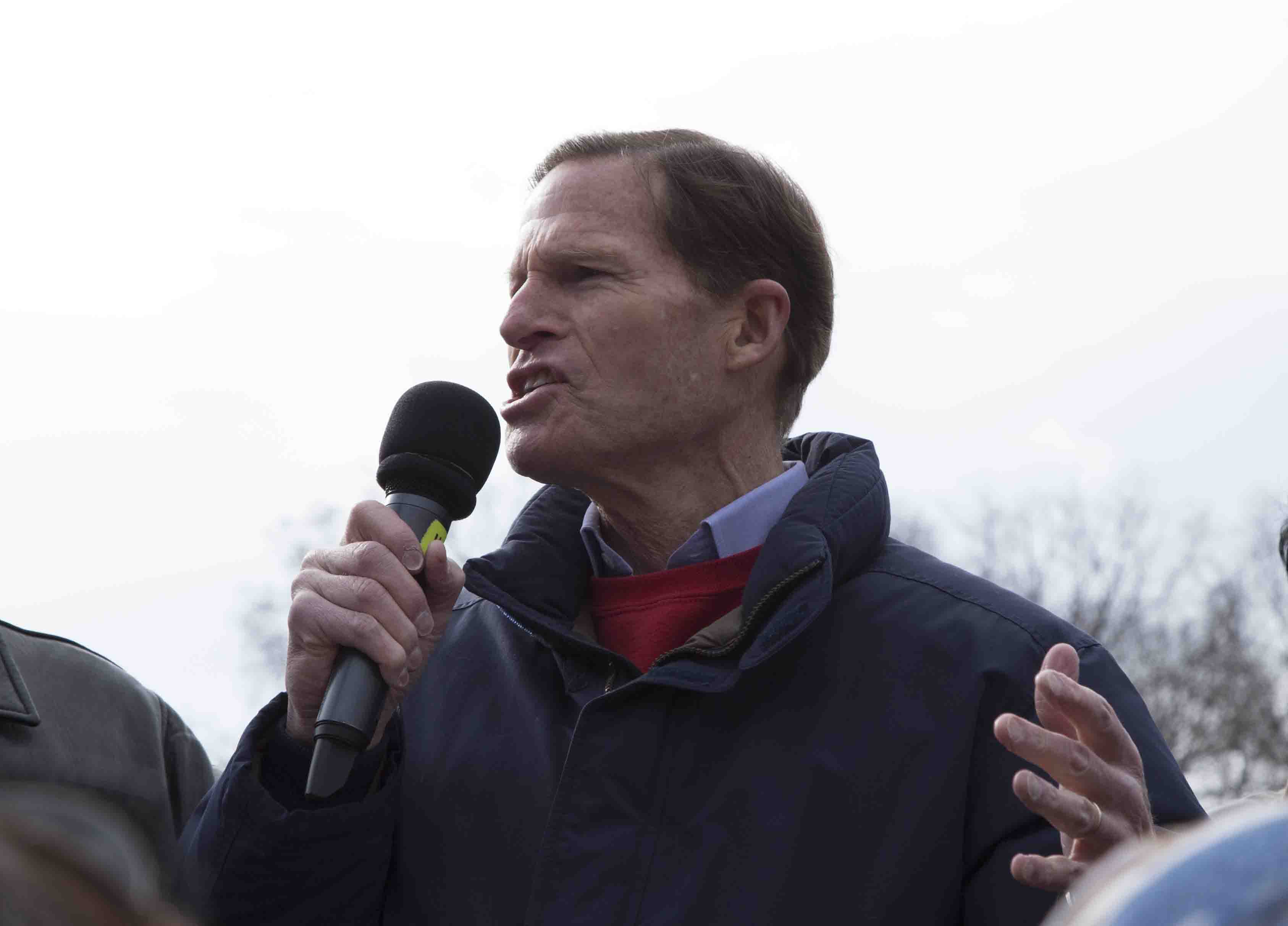
Before President Donald Trump burst onto the national political scene, Senator Richard Blumenthal LAW ’73, D-Conn, routinely attracted a few hundred audience members to his town hall meetings.
But on Saturday afternoon, nearly 1,000 people crowded into the Wilbur Cross High School auditorium to hear Blumenthal’s message and to make their own voices heard.
After a brief introduction by Mayor Toni Harp, Blumenthal offered some opening remarks before yielding to questions from the audience. The two lines to ask questions stretched from the front row to the exits on either side of the packed auditorium. In his remarks, Blumenthal emphasized the unprecedented nature of the current political moment — one defined, he said, by the existential threat that the Trump administration poses to American democracy.
“We are the generation whose finest hour will be to preserve our democracy,” Blumenthal said. “It is that simple and that serious. … Never before have American values been so threatened. Never before has our power been potentially so recklessly and impulsively used to run the world. So we are in the fight of our lives. I am in the fight of my life because I am fighting for your lives.”
Waving signs calling for everything from the preservation of the Affordable Care Act to the immediate impeachment of “the orange psychopath,” the overwhelmingly Democratic crowd frequently interrupted Blumenthal with standing ovations and anti-Trump chants. Calls of “impeach” resounded throughout the event, and a number of audience members voiced their desire to see the president impeached in questions to Blumenthal and in interviews with the News.
One woman near the front even stood up to shout over Blumenthal — not out of disagreement but out of passionate assent.
“You have to learn to recognize a narcissist,” she told Blumenthal before apologizing and returning to her seat.
The audience’s questions covered a host of issues, including the fate of the ACA, the ongoing investigations into communications between the Trump campaign and the Russian government, and the potential conflicts of interest involving the president’s business ties. The most common concern among audience members, though, was that the Trump administration would slash Medicare benefits.
Holding a sign that read “The Silent Majority Stands with Trump,” a lone Trump supporter asked Blumenthal about his plans to address illegal immigration in light of the murder and kidnapping allegedly committed in Bridgeport on Friday by a man who had re-entered the country after being deported in 2013. In his response, Blumenthal said the administration should instead focus on “comprehensive immigration reform,” rather than mass deportation.
Most audience members, however, said they were attending the event because of their concerns with the Trump agenda. Some, like Anneke Hathaway and Marian Wittink, both of whom immigrated from the Netherlands as exchange students and now live in New Haven, said that recent actions by the Trump administration prompted them to engage in politics for the first time.
“You have to understand that neither one of us has ever been personally involved in politics, but we’re so alarmed about what is going on right now that we know we need to speak up,” Hathaway said. “This is not okay. We can head into very negative directions if we don’t stand up and make our position known.”
For many in attendance, events in Washington were not the most pressing topics but rather how individual citizens can have an impact on politics.
New Haven public school teacher Jennifer Sarja said the talk left her feeling hopeful and “emboldened.” Still, she expressed frustration that the Democratic Party has yet to lay out a concrete plan for how citizens can contribute to resistance efforts. For Sarja, the party has failed thus far to match the enthusiasm of its base.
“We need our Democratic leadership to take a stand,” Sarja said. “But until they do, we’re going to keep rallying, we’re going to keep going to the Green, we’re going to keep going to Washington and we’re going to keep doing everything that we can to be noticed.”
“People’s lives are now on the line,” she added. “This is not hypothetical anymore.”







